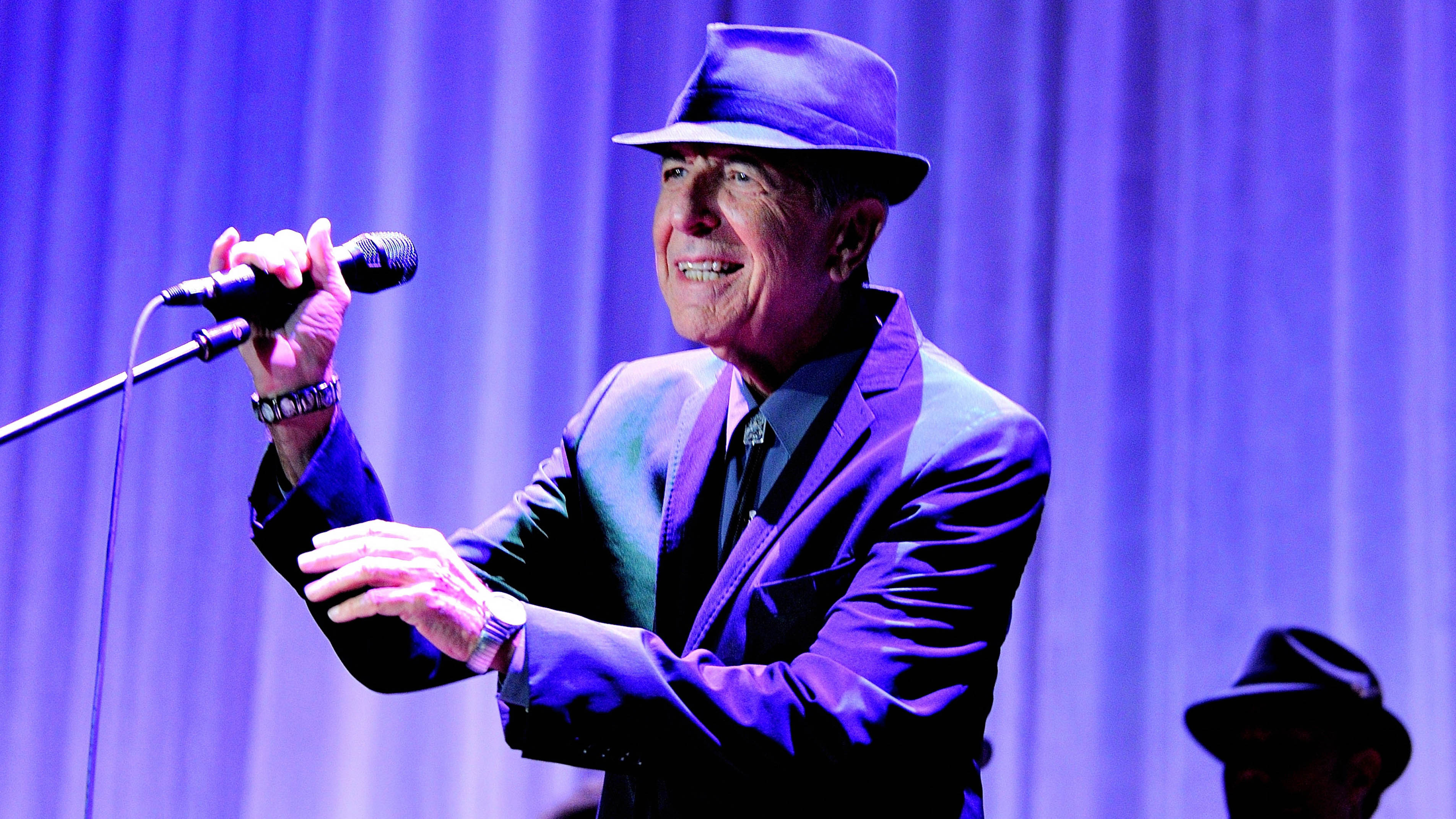Leonard Cohen—the high priest of popular music who seemed to channel grace, truth, and spirit from some deep and universal source—has passed away. The news was announced Thursday evening on his Facebook page; a memorial service is being planned in Los Angeles. He was eighty-two.
Cohen made his name as a songwriter at a relatively late age. He was thirty-three when he released his 1967 debut, Songs of Leonard Cohen. The album featured several songs that are now considered among the finest ever written: “Suzanne,” “So Long, Marianne,” “Hey, That’s No Way to Say Goodbye.” He would go on to compile one of the most esteemed catalogs in the history of popular music, and his songs would be covered by musicians both artistically like-minded (Nick Cave, Nina Simone) and not (Susan Boyle, Sting).
Though he had struggled to find an audience as a poet, Cohen emerged fully formed as a musician. Songs of Leonard Cohen and 1969’s Songs from a Room are spare, dry recordings that place the singer’s voice—nasally, high, tired—squarely in the center. Even in later years, when his albums became more heavily produced, a single rub of his baritone could obscure any other sound.
What that voice delivered was wisdom and kindness, bon mots brought forth with felicity; listening to Leonard Cohen always felt like coming to the end of a very long and arduous journey and finding a warm bed waiting for you. To listen to him was not only to feel known, but to feel cared for, too, body and soul.
Unlike many of his contemporaries, Cohen remained artistically vital through middle age and beyond; in many ways, age seasoned him. Many of his finest compositions (“The Future,” “Show Me the Place,” above all “Anthem”) were released after he was well beyond fifty.
His last record, the excellent You Want it Darker, was released in late October to strong reviews, and despite reports that he was in ill health, he said at an event in Los Angeles that he hoped to record at least two more albums. The album finds him ruminating—truly, there has never been a better ruminator in music—on his favorite subjects: love, religion, sex, death, guilt, and forgiveness. “I wish there was a treaty,” he sings on the album’s final song, “Between your love and mine.”









